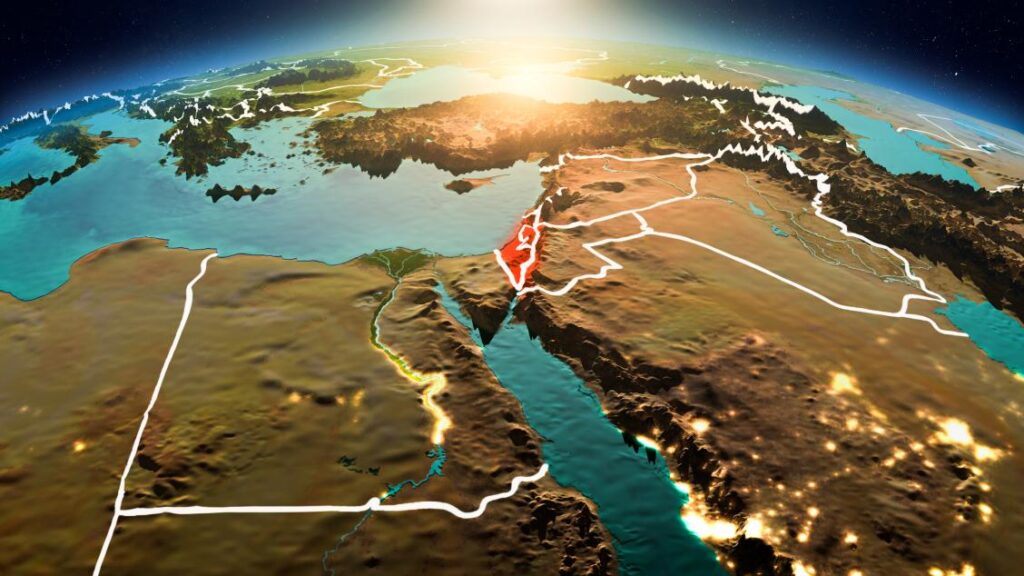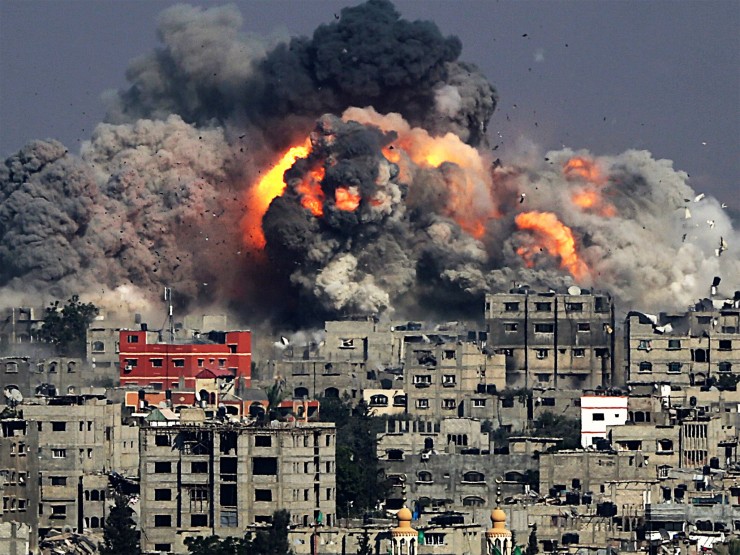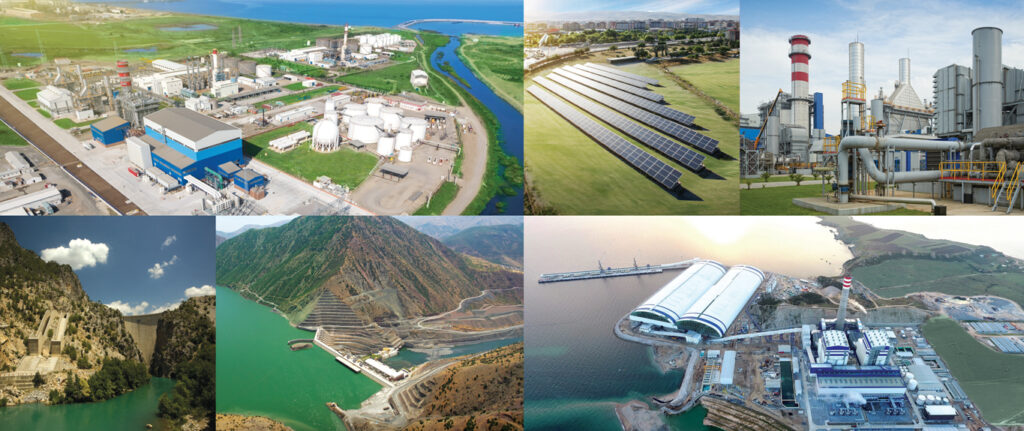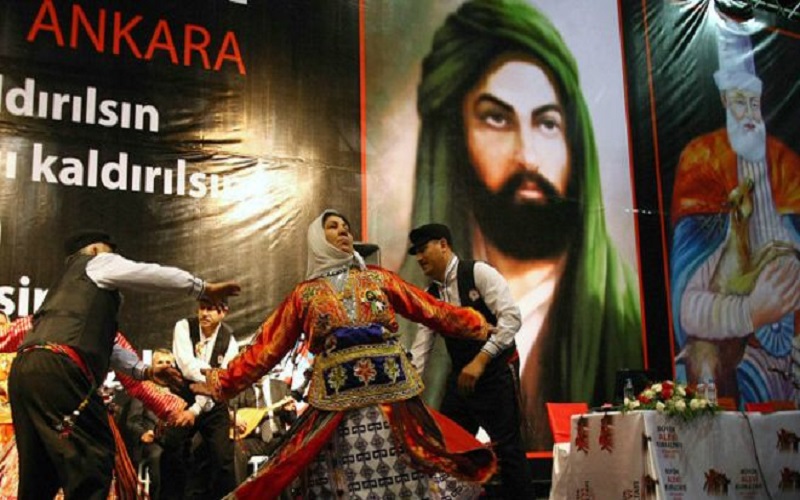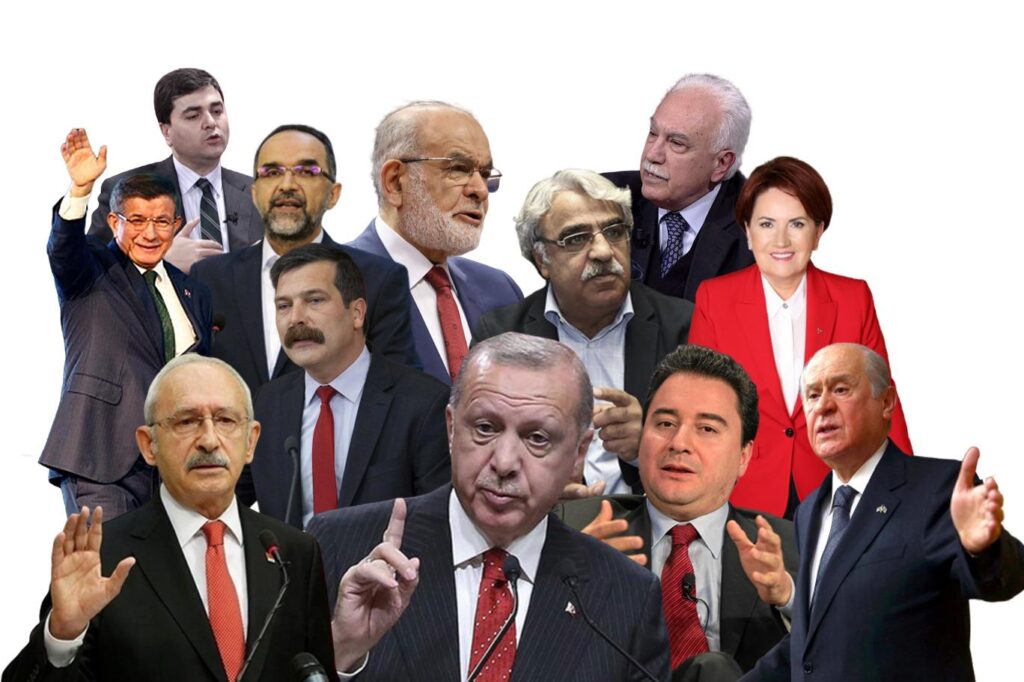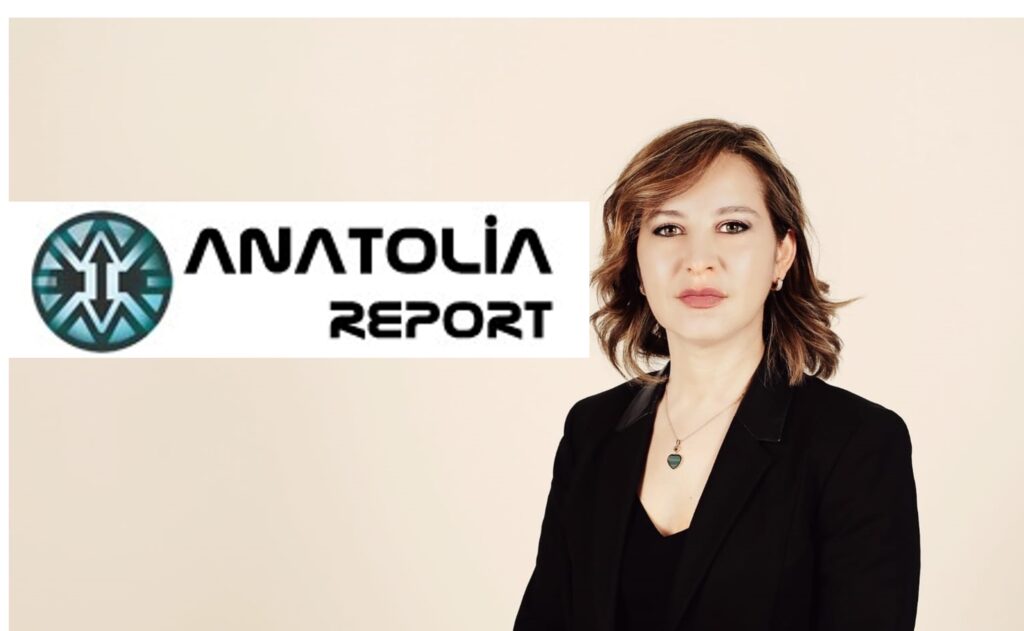Decisive Crossroads: Strategies and Stakes in Türkiye’s 2024 Local Elections
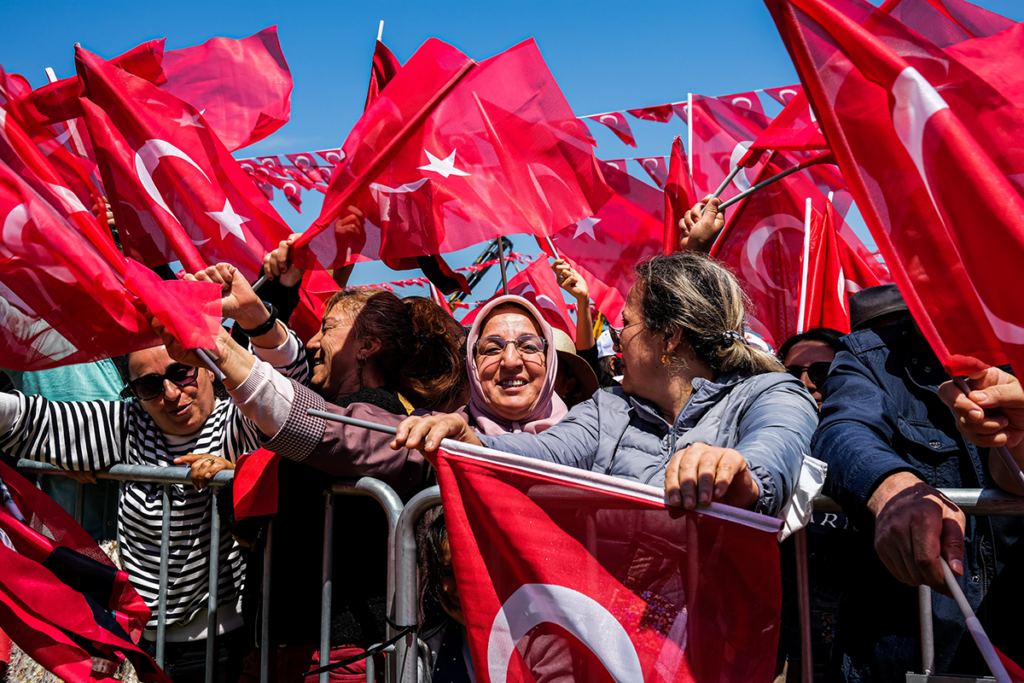
ANATOLIA REPORT
February 2024
Türkiye is preparing for crucial municipal elections scheduled for March 31, 2024. The Supreme Election Council (YSK) has announced the electoral program, with political parties eligible to compete to be declared on January 2. The campaign period will conclude on March 30, a day before the elections.
TRT World Research Centre experts unpack the importance of these local elections, provide contextual insights on the unfolding political contests, and reflect on the evolving dynamics.
Dr. Tarek Cherkaoui: Türkiye’s Pivotal 2024 Local Elections
The upcoming local and mayoral elections in Türkiye, scheduled for March 31, 2024, will witness some 64 million eligible voters electing new mayors and other officeholders in the regional administration of 81 provinces and districts.
These polls have high significance because of many reasons. They come after the 2023 presidential elections in which the opposition ran a wide, but heteroclite coalition, yet failed to prevail over the ruling Justice and Development Party (AK Party), in alliance with the Nationalist Movement Party (MHP), known as the People’s Alliance, and supported by other smaller parties. Whereas the People’s Alliance emerged compact and victorious, the opposition came out disoriented and disunited. These polls will confirm whether this pattern continues.
Even if local and mayoral voting patterns may differ from the presidential ones, these polls are important in terms of political programs and alliances. In its campaign trail, the ruling People’s Alliance is blending local politics (earthquake preparedness, urban renewal, and public projects) with national politics and identity issues.
The CHP, led by a new chairman, Özgür Özel, endeavours to form an alliance similar to 2019, approaching the People’s Equality and Democracy Party (DEM Party) (formerly known as HDP) and the Good Party (IYI Party) to form a coalition. The party’s program focuses on the environment, social policy, and urban renewal.
Even after its rebranding, allegations surrounding the DEM Party’s links with the PKK terror group continue to push away Turkish nationalists. The IYI Party, competing for the nationalist electorate, faces a conundrum. In the past, the IYI Party obtained good results because it operated within an alliance. Yet, any political strategy that involves collaboration with pro-PKK elements will cause havoc within the party. This is why the party’s spokesperson announced that IYI Party will run independently. This position may shift eventually, but it indicates the dilemmas facing the party and the opposition in general.
The clash of personalities is also important in these polls. For years, the opposition groomed the mayors of Istanbul and Ankara, Ekrem Imamoğlu and Mansur Yavaș, respectively, to compete at the presidential level. Therefore, their approach to municipal services and national issues are closely scrutinised.
Meanwhile, the AK Party intends to retrieve control of Türkiye’s major cities—including Ankara and Istanbul. The loss of these cities in 2019, especially Istanbul, was a blow for the party, deprived of a precious nexus with its grassroots.
Consequently, the AK Party nominated the former Minister of Environment and Urban Planning, Murat Kurum, to compete against Imamoğlu. Kurum is a strong candidate who comes well-prepared for the preparedness in the face of earthquake threats. He proposes tangible solutions to the city’s problems, such as the traffic and water crises. Conversely, Imamoğlu is well equipped for the communication battle, spending substantial sums on advertisements and public relations.
Finally, some parties will attempt to surf on negative campaigning and politics of fear. The Zafer Party had already shown its colours in the presidential elections, and the CHP adopted similar tones in the second round. Others could follow suit and agitate social fault lines.
In conclusion, the elections are not just a test of local governance but also a reflection of broader national political dynamics, with implications for the country’s future direction.
Burak Elmalı: The Electoral Battle for Istanbul and Ankara: A Critical Analysis
The local elections in Istanbul and Ankara, Türkiye’s most important cities, hold considerable significance. Historically under the Justice and Development Party’s (AK Party) control from 2004 to 2019, both cities experienced a shift in power during the last local elections, marking a significant turn in Türkiye’s political landscape. Particularly in Istanbul, the megacity mirroring the country’s diverse demographics, election outcomes are reflective of national political trends and public sentiment.
The 2019 elections in these cities were marked by a mix of anticipation and disappointment. Delays in the implementation of certain policies undermined the chances of the AK Party, which were further affected by the wide coalition the opposition built. Following the loss of these cities, the party conducted an introspection effort, which led to a strategic realignment at both central and local levels. The announcement of Murat Kurum as the AK Party’s candidate for Istanbul, under the slogan “Yeniden İstanbul” (“Istanbul Again”), symbolises a rejuvenation of political strategy, particularly following the party’s success in the May 2023 presidential elections.
President Recep Tayyip Erdoğan’s People’s Alliance capitalised on this momentum, employing a communication strategy that emphasised the tangible achievements of his administration and the numerous infrastructure projects such as highways, bridges, and social services. This approach resonates in cities like Istanbul and Ankara, enhancing the party’s appeal.
In contrast to previous elections, the political landscape leading to the upcoming local elections is different. The Nation Alliance, especially the mayors of Istanbul and Ankara, Ekrem İmamoğlu and Mansur Yavaş, were prominent protagonists in the May 2023 presidential race. The speculation around their vice-presidential candidacies and the internal dynamics of the Nation Alliance, particularly the involvement and then retraction of Meral Akşener’s Good Party (IYI Party), added complexity to their roles. This tumultuous period saw these mayors shifting focus from city governance to political campaigning, impacting their administrative responsibilities.
Notably, the cohesion of the “Altılı Masa” (Table of the Six), including the Peoples’ Democratic Party (HDP), has diminished, raising questions about maintaining support for İmamoğlu and Yavaş. The Good Party’s decision to refrain from an alliance with the CHP in local elections further complicates the scenario. Conversely, the People’s Alliance, primarily the AK Party and the Nationalist Movement Party, remains compact and united, bolstering its position.
Looking ahead, the momentum seems favourable for the People’s Alliance, as the choice of the candidates Murat Kurum in Istanbul and Turgut Altınok in Ankara resonate with the populace in the two cities as per the recent polls. The opposition faces the challenge of replicating its prior success amidst a shifting political climate, less supportive than in 2019. Meanwhile, the People’s Alliance benefits from a unified front, a presidential victory, and effective policy implementation, contributing to an auspicious environment for their campaign.
In conclusion, the campaign trail for the local elections in Istanbul and Ankara will be heavily influenced by strategic political communication and public relations, determining the fate of these pivotal cities in Türkiye’s political narrative.
Ömer Carullah Sevim: The AK Party’s Strategy in the 2024 Local Elections in Türkiye
The AK Party approaches the 2024 local elections buoyed by its victory in the presidential and parliamentary elections just 10 months prior. Despite this, several critical challenges await the ruling party.
In the 2019 local elections, the AK Party emerged as the leading party in Türkiye, but it ceded key metropolitan cities, including Istanbul and Ankara, to a coalition spearheaded by the CHP. The 2023 presidential elections saw CHP’s candidate, Kemal Kılıçdaroğlu, narrowly outperform President Recep Tayyip Erdoğan in many of these same cities. Consequently, the AK Party and political observers will be closely monitoring these urban areas come March 31st. A notable change in this election is the disintegration of the CHP-led Nation Alliance, with the former allied parties fielding their own candidates. Although these parties hold a smaller share of the vote, their fragmentation could provide the AK Party with a critical margin for victory.
However, the metropolitan mayors from the CHP now have greater local outreach than in 2019, presenting a significant advantage for the AK Party’s main rival. The AK Party itself is focusing on service delivery over ideological rhetoric in its candidate selection, particularly in Istanbul and Ankara. The selection of Murat Kurum and Turgut Altinok in Istanbul and Ankara, respectively, embodies the shift from ideological discourse and culture wars candidates with exemplary service track record.
Two additional challenges confront the AK Party. The first is their performance in CHP-stronghold cities like İzmir, Muğla, and Çanakkale. Victory in these provinces is unlikely, but any increase in votes compared to previous elections would signal the AK Party’s ability to engage previously unreachable segments, a critical indicator following their general election success.
The second challenge lies in the interior and rural areas, traditionally the AK Party’s strongholds. Here, the AK Party faces competition from its People’s Alliance partners, especially the MHP and the newly formed Yeniden Refah Party (YRP). These parties might attract voters who support President Erdoğan but hold criticisms of the government. The MHP’s established regional strength and the YRP’s novel approaches and rivalry with the AK Party add complexity to the electoral landscape in these areas.
Furthermore, the alliance with the YRP in key metropolitan cities, particularly Istanbul, is yet to be finalised. In the 2023 general elections, the YRP garnered 3.3% of the vote in Istanbul, a figure significant enough to impact the fiercely competitive environment there, as these votes likely shifted from the AK Party’s base. The performance of the YRP and MHP will not only affect the outcomes in these cities but also the future dynamics within the People’s Alliance.
In summary, while the AK Party enters these local elections with the momentum of recent national victories, it faces a multifaceted electoral landscape, with challenges ranging from opposition strongholds to dynamics within its own alliance. The outcome of these elections will be pivotal in shaping the party’s future strategies and political standing in Türkiye.
Hüseyin Özdemir: CHP’s Pivotal Moment: Navigating Leadership and Alliances Ahead of 2024
The setback suffered by the Republican People’s Party (CHP) in the 2023 general elections had a ripple effect. Among the consequences was the empowerment of the ‘Change Movement,’ which attributes the electoral defeat to systemic shortcomings within the current opposition parties. This movement singles out the alliance strategy initiated in 2018, which failed to adapt to evolving dynamics and did not satisfy the opposition voters’ desire for change.
As its website outlines, the Change Movement asserts that society expects the opposition to spearhead drastic changes, and if the CHP transforms itself, it will be the driving force for this societal shift. Therefore, the movement advocated for a leadership change in the party, which led to the election of Özgür Özel as chairman and the demise of the previous leader, Kemal Kılıçdaroğlu.
Consequently, the CHP underwent substantial rejuvenation during its congress. The new chairman, Özgür Özel, expressed his desire to replicate past local election triumphs and aspired to reinforce the opposition’s claim to power in Türkiye. However, these aspirations face some serious snags, including the disintegration of the opposition bloc, embodied in the Good Party’s (IYI Party) reluctance to join the alliance with CHP, and the high spirits enjoyed by the ruling coalition after its triumph in the general elections.
In the 2019 elections, the criteria for fielding mayoral candidates witnessed significant amendments. The candidates must have a successful track record in municipal service and commitment to social welfare in districts and metropolitan cities. The Change Movement within the CHP capitalised on these rules and prompted a rejuvenation of the fielded candidates in the local elections.
Hence, the renovated CHP wants to use the upcoming local elections to showcase its capabilities. Inspired by the current Mayor of Istanbul, Ekrem İmamoğlu and led by Özgür Özel, the CHP’s moves in the local elections will influence the overall political strategy in the forthcoming period.
The recent change in chairmanship has significantly benefited Ekrem İmamoğlu, a prominent figure in the reformist wing. İmamoğlu’s touch is evident in selecting candidates for Istanbul district municipalities. However, winning the upcoming elections will not be a cakewalk for İmamoğlu. The Good Party (IYI Party), a previous ally, has decided to put forth its candidates. Similarly, the Dem Party (formerly known as HDP), which refrained from having candidates in the last polls, is likely to change its approach this time and field its candidates. Considering his narrow victory in the previous election, the lack of a unified front poses a considerable challenge for İmamoğlu.
Although Mansur Yavaş, who endorsed Kılıçdaroğlu during the party’s chairman election, is set to be CHP’s candidate in Ankara in the upcoming period, there’s a prevailing belief that his influence might not be as significant as before. The decision to nominate Yavaş, despite his misalignment with the change movement, indicates a lack of strong alternatives for Ankara within the CHP.
As the CHP heads towards another crucial election, the impending 2024 local elections are a boon and a bane. On the one hand, it represents a chance to reform the work and culture of the party. On the other hand, it brings forth numerous challenges. Either way, this election is a pivotal moment for the new CHP leadership to address the disillusionment of its grassroots following the 2023 general elections.
Ömer Carullah Sevim: Türkiye’s 2024 Local Elections is a Litmus Test for the IYI Party’s Cohesion
As the Good Party (IYI Party) gears up for the crucial 2024 local elections in Türkiye, it faces several interconnected crises that are pivotal not only to its future but also to the broader left-right political dynamics in the country.
Since its inception in 2017, the IYI Party has participated in three major elections, each time in alliance with the main opposition, the CHP. Meral Akşener’s current vision for the party is encapsulated in the slogan “Free and Independent IYI Party”. The 2024 elections will be a critical test of its ability to stand alone, separate from the CHP. This move towards independence, a significant shift from the party’s past strategy of aligning with the CHP against the AK Party government, has caused internal turbulence, challenging its organisational stability and political identity.
The decision to contest independently has led to upheavals within the party structure. Previously, party strategies were anchored in cooperation with the CHP, focusing on uniting the opposition and challenging the AK Party government. This new direction may inadvertently impact the CHP, potentially costing it key cities like Istanbul and Ankara – cities for which the IYI Party had previously campaigned alongside the CHP. Additionally, this shift has caused rifts and resignations at various levels within the IYI Party, distancing some members from the party leadership and complicating candidate selection. The party now faces the challenge of reconciling years of dependence on the CHP with its new strategy, which has resulted in a significant cadre issue.
The IYI Party’s ideological stance remains ambiguous. While initially leaning towards a centre-right-liberal position, evidenced by distancing itself from far-right figures like Ümit Özdağ, there has been a recent resurgence of far-right, nationalist discourse within the party. This ideological uncertainty stems not from theoretical debates but from a lack of clarity on which ideological path will lead to power. Before the 2023 presidential elections, Akşener’s aspiration to be the prime minister and gather the centre-right votes, which predominantly favoured the AK Party, was a strategic move to consolidate the party’s position. However, the failure to win the election has weakened this claim.
The IYI Party’s performance in the forthcoming local elections is crucial. It has been the largest opposition right-wing party in the last three elections, but a failure to achieve significant success in the upcoming elections could jeopardise this position. This is especially critical given the emergence of new competitors like the DEVA Party, which are vying for the same voter base. The party’s response to these crises will not only determine its own future but also have significant implications for the political landscape of Türkiye.
Mehmet Kılıç: DEM Party’s Electoral Strategy in Türkiye’s 2024 Local Elections
The People’s Equality and Democracy Party (DEM Party), reassessing its approach after underperforming in the 2023 general elections, is now strategizing for the 2024 local elections with a focus on regaining control in municipalities where trustees were appointed. The party is conducting primaries for various provincial and district mayoral positions, a crucial component of their strategy.
While the DEM Party’s officials have made several statements about the subject, a coherent strategy for fielding candidates across all regions remains somewhat ambiguous. The party seems inclined to nominate its own candidates in nearly 60 provinces and districts where it previously performed well, securing either first or second place. In Western regions such as Ankara, Antalya, Bolu, Konya, Kocaeli, Kayseri, and Samsun, the party’s stance is more transparent. However, the strategy for areas with high electoral potential, like Istanbul, Adana, and Mersin, is not explicitly defined. The DEM Party, which is accused of having links with PKK, regularly draws the ire of Turkish nationalists and, therefore, the party’s moves are closely scrutinised and its strategy to appeal to a broader voter base is affected by these allegations.
The DEM Party is considering electoral alliances in certain regions, conditional upon addressing certain political constraints in the Southeastern regions and abolishing the trustee system. These overtures are aimed at the ruling AK Party, though it is unlikely if they will be reciprocated.
At a central executive committee meeting on December 18, 2023, the DEM Party resolved to accept candidate applications in Western provinces as part of an “urban consensus” strategy. This approach is actively being pursued in major cities like Istanbul and Ankara, where the party is open to collaborative candidacies. However, if an alliance is unfeasible, the DEM Party is prepared to contest the elections independently.
In pursuit of this strategy, the DEM Party is in talks with other political groups, notably the CHP. Özgür Özel, CHP’s new chairman, met with the DEM Party in December, signalling ongoing collaboration discussions for the local elections. The DEM Party emphasises transparency in these collaborations, contrasting with the previous election’s behind-the-scenes dealings, like the contentious promise made by Kemal Kılıçdaroğlu to Ümit Özdağ during the presidential election.
A recent incident exacerbating tensions was the closure of CHP’s Antalya Metropolitan Municipality halls during a DEM Party meeting, leading the DEM Party to withdraw its support for the CHP in Antalya. If the DEM Party fields a strong candidate from Antalya, it may cause difficulties for the CHP in this city.
One of the most critical areas of uncertainty is the Istanbul Metropolitan Municipality Mayoral election. The DEM Party’s stance in Istanbul remains undecided. Although no official statement has been issued, there are speculations behind the scenes about Başak Demirtaş, the wife of former HDP leader Selahattin Demirtaş, potentially becoming the candidate for the Dem Party. While Başak Demirtaş has clarified that she hasn’t received any offer from the party, she is willing to consider the situation if nominated. In such a scenario or if the DEM Party enters the election with any different candidate, it could profoundly alter the balance in Istanbul, where the DEM Party holds a substantial vote potential of 8-10 per cent, significantly impacting the CHP’s chances of securing victory.
In summary, the DEM Party’s strategy is relatively clear in its strongholds, but its approach in key cities like Istanbul is yet to be fully articulated. The party’s base is pressuring for independent candidacies, reflecting a reluctance to unconditionally support the CHP and addressing voter dissatisfaction from previous collaborations. This sentiment was evident in the decreased voter turnout in areas where the DEM Party is influential, particularly during the second round of the Presidential elections.
Murat Selvi: Candidate-Centric Trends in Türkiye’s Local Elections
In Türkiye’s political history, the local election process has often faced criticism for its top-down approach to mayoral candidate selection, shaped largely by intra-party relationships or conflicts of interest. However, recent trends suggest a shift away from this practice, marking a significant change in the Turkish political landscape. Candidates, rather than parties, are increasingly becoming the focus of local elections, suggesting a move towards more democratic and grassroots-oriented politics.
The trend is towards prioritising candidates based on their connection to and understanding of their cities, rather than solely on partisanship, ideology, or ethnicity. This shift is evident in the opposition wing, although there are exceptions. The emphasis on local candidates who have a deep understanding of their city’s people, problems, and potential solutions is a welcome development for both the citizens and the broader direction of Turkish politics.
In this evolving political scene, mayors who have proven effective are being re-nominated, and those who have excelled in district municipalities are being considered for higher municipal roles. The commonality among these candidates is their track record of success, indicating that service-oriented politics is gaining precedence at the local level.
A notable example is the recent election in Şırnak, traditionally a DEM Party stronghold (formerly known as HDP). The AK Party’s surprising victory with candidate Mehmet Yarka highlighted the effectiveness of prioritising the city’s interests over ethnic politics. Yarka’s re-nomination underlines this successful approach.
The focus on selecting candidates capable of addressing key issues and needs of cities underscores the importance of qualifications in the selection process. The AK Party’s nomination of Sami Er, an urban renewal expert, for earthquake-affected Malatya is a case in point.
While there is a clear trend towards valuing candidates and their qualifications, exceptions exist. The situation in Hatay is one such example. The CHP’s re-nomination of Lütfü Savaş, despite internal party criticism and his association with the city’s mismanagement during recent earthquakes, suggests a conflict within the party and highlights the growing significance of candidates in local elections. This scenario, where candidates are becoming a focal point of competition, indicates a shift from the traditional dynamic where parties overshadowed individual candidates.
In conclusion, the local elections in Türkiye are witnessing a transformation, emphasising candidate-centric politics over party-centric strategies. This shift points to a more participatory and locally attuned political process, reflecting the evolving dynamics of Turkish democracy.


